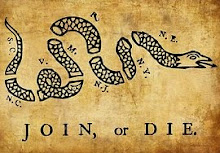In 1912 the House Banking and Currency Committee had hearings to look into the control of the banking resources in America. This committee concluded that American banking was in the hands of a "money trust." This was a well established identity that consisted of a few leaders of finance.
When President Wilson (a Progressive) was elected to office, he opposed any plan that would concentrate control in the hands of the existing banks. Instead he wanted the creation of a central bank that would perform all banking functions and issue currency against commercial assets and gold. Congress approved the Federal Reserve Act in 1913 under the Wilson administration.
This act went against the Founding Fathers idea of banks and how they should be operated. Thomas Jefferson was a leading opponent of central banks. He stated: "The idea of creating a national bank I do not concur in, because it seems now decided that Congress has not that power (although I sincerely wish they had it exclusively), and because I think there is already a vast redundancy rather than a scarcity of paper medium."
He states further: "The monopoly of a single bank is certainly an evil. The multiplication of them was intended to cure it; but it multiplied an influence of the same character with the first, and completed the supplanting the precious metals by a paper circulation. Between such parties the less we meddle the better."
Jefferson also had strong feelings about printing paper currency. "That paper money has some advantages is admitted. But that its abuses also are inevitable and, by breaking up the measure of value, makes a lottery of all private property, cannot be denied."
Were We Are Today
Now we have a Federal Reserve Bank Chairman who wants even MORE POWER! Chairman Bernanke expressed a desire to block ANY current legislation that would restrict his growing powers. He claims that the congressional efforts would weaken the bank's ability to handle future crisis and could politicize the monetary policy. WHAT?
We believe that the current policies ARE in fact politicized and that they are also an abysmal failure. They have ignored to crack-down on any risky lending practices that led to the financial meltdown. They did quite the opposite!
Bernanke is also opposed to Congress repealing the ban on congressional audits established in 1978. Bernanke wants to operate independently without any "political influence" in the long-term economic interest of the nation. Yeah, sure!
Bernanke still likes the idea that he can determine which financial and corporate institutions are "TOO BIG TO FAIL" and wants even more powers for a tougher oversight of these measures.
Quite the contrary, we should ABOLISH the Federal Reserve Bank! They have overgrown their authority and now want more POWER! That's outrageous! They need to be stopped dead in their tracks – NOW!
Action To Take
Support Ron Paul's initiative to reduce the powers and control of the federal Reserve Bank.
Sunday, November 29, 2009
Subscribe to:
Post Comments (Atom)

No comments:
Post a Comment